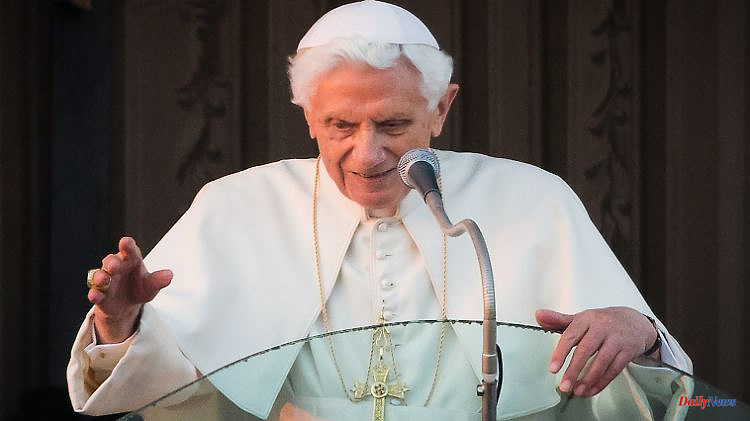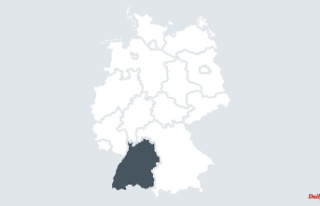Jospeh Ratzinger's election as Pope was celebrated in Germany, but the enthusiasm was of little use to the Catholic Church in Germany. She was a stranger to him anyway, says Pope expert Andreas Englisch. With his resignation he left a dangerous legacy to the church.
ntv.de: How is Pope Benedict XVI. keep in remembrance?
Andreas Englisch: With his spectacular resignation, of course. Never has a pope resigned voluntarily without having to flee afterwards. The fact that Joseph Ratzinger ensured that for the first time a resigning pope lived in the Vatican alongside an incumbent pope will occupy the Church for centuries to come.
Did he change the office of the Pope forever?
Undoubtedly, the resignation has changed the office of the Pope. This resignation had long been possible under canon law, but of course the spectacular precedent changes everything. Popes can now be asked to resign. In principle, the fact that there could now more often be a resigning pope and a reigning pope at the same time threatens the office of the pope himself, because the emergence of anti-popes would be more likely.
What were the considerations behind his resignation during his lifetime?
Joseph Ratzinger felt that he had lost the support of the Vatican. A whole series of mishaps, the rehabilitation of Holocaust denier Bishop Richard Williamson, the failed Regensburg speech and the criticism of his dealings with the Jewish people isolated him.
Which of his predecessors did he feel most connected to?
He worshiped Pope Pius XV. He appreciated his desperate attempts to prevent the First World War.
What has he been doing since retiring?
With reading and writing, like his whole life.
How German or Bavarian did he still feel?
Joseph Ratzinger always longed to go home. He never really got along with the noisy, chaotic Rome. He loved the forests of the Alps, the traditions of his homeland, didn't dine in Rome's numerous trattorias, but in a Tyrolean restaurant that also served Bavarian food.
There was a great "We are Pope" enthusiasm following his appointment. To what extent has it benefited the Catholic Church in Germany?
There is no doubt that many people in Germany were inspired by Pope Benedict. I well remember the services in Munich and Regensburg and the shouts of "Benedetto". Nevertheless, Germany had difficulties with this Pope. He couldn't stop the dwindling membership of the Catholic Church, but he didn't want to either. He had in mind a smaller church of pure souls.
How did he himself see this excitement?
Joseph Ratzinger was a theologian and scientist through and through, and he really couldn't relate to the enthusiasm of the masses.
What theological footprint did he leave behind?
Benedict XVI tried to turn back time. His decision to re-establish the old Mass, which was said in Latin and with the priest turning his back on the faithful, led the Church into a more conservative corner.
He formulated his negative attitude towards same-sex marriages and abortions into old age. Did he see himself as conservative?
Without any doubt. Benedict XVI wanted to preserve the church of his childhood.
Why didn't he side with the victims more in the abuse discussion?
Benedict XVI certainly could have done more for the victims, but it is one of his merits that he finally took the suspicions against priests seriously. Measured against his predecessor, Pope John Paul II, he refused to continue the Vatican's ostrich policy of seeing and hearing nothing. During the tenure of Pope John Paul II, Joseph Ratzinger had unsuccessfully called for clear intervention by the Church in the case of the sex offender Cardinal Groer, Archbishop of Vienna.
Solveig Bach spoke English with Andreas












